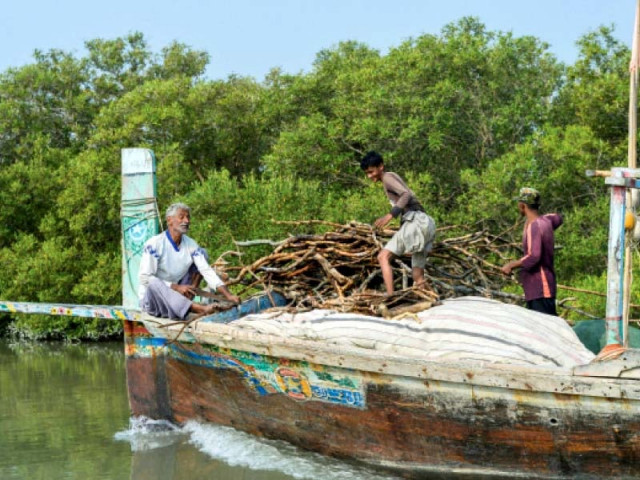Petroleum prices stifle local fisherfolk
Activist urges govt to provide subsidy to fisherfolk community

Where rising inflation and surge in petroleum prices is an issue which much of the country finds itself grappling with at the moment, in the fishermen’s village of Ibrahim Haideri, it has become a source of widespread starvation and chaos.
Per the locals, who have not been able to earn in the last two months, their plight is an augmented product of the governments’ inattention. While other issues, such as lack of schools, access to potable water and sanitation have also been plaguing their lives, without much amelioration from any public or private agency.
“There was a time when diesel would cost six or seven rupees per litre and at that time, the price of fish and prawns was four to six hundred rupees. Today, the price of diesel has gone up to Rs145 per litre while the price of fish and prawns has gone up to Rs700-800,” claimed Irfan Omer, the head of a fishermen’s rights movement.
According to the local activist, this gap has greatly burdened the fishermen’s community, while they haven’t been provided any subsidies from the federal or provincial government.
“The federal government should review the prices of petroleum products and provide subsidy to the fishermen in the same way as it provides a subsidy to the farmers. Just as the official price of wheat, rice and sugar is fixed, the official price of fish and prawns should be fixed for the whole year too. In this way, the fishermen can also redeem maximum profits from their sales, and the government can start grading them,” he urged. “For instance, grade-one prawns, if fixed at Rs3,000 per kilogrammes, should go at the same rate for the whole year,” he added.
Read Water pollution, drought endanger Punjab fish
Explaining wholesale market dynamics, Omer said that when fishermen catch more fish and prawns from the sea, the rates go down and when the catch is limited, the prices go up. In both cases, there is no benefit to the fishermen, while traders and customers continue to make bank on their losses.
“We can remain at sea from one day to a whole month. There are different sizes of vessels, but a single day usually costs around Rs100,000, with diesel costing between Rs30,000 and Rs50,000 depending on the size of the fishing vessel. Large vessels that go to sea for long periods of time cost between Rs20 lakh and Rs25 lakh, of which diesel costs between Rs12 lakh and Rs13 lakh. Most of these vessels belong to the capitalists, while very few boats belong to fishermen,” he told.
There is no fishing in the months of June and July, owing to breeding season. In the 10 months that fishermen go to sea, they are required to split 50 per cent of their income with investors. The remaining 50 per cent is than split among all the fishermen on board, “which means that individual profit comes down to peanuts.”
Published in The Express Tribune, December 5th, 2021.



















COMMENTS
Comments are moderated and generally will be posted if they are on-topic and not abusive.
For more information, please see our Comments FAQ